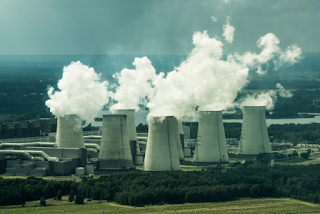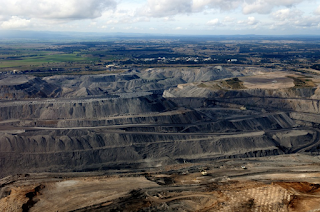We have far more oil, coal and gas than we can safely burn. Fuel is enormously useful, massively valuable and hugely important geopolitically, but tackling global warming means leaving most of it in the ground – by choice. Coal is the dirtiest of fossil fuels. It produces per kilogram the least amount of energy and the greatest amount of pollution. Coal supplies a third of all energy used worldwide and makes up 40% of electricity generation, as well as playing a crucial role in industries such as iron and steel. The coal industry stands in the way of a safe and healthy future for us all. From destructive mines to polluting stacks and toxic ash dumps, coal lays waste to our environment. Coal threatens our most basic needs: clean water to drink, clean air to breathe, and a safe climate.
- Fossil fuels are a finite resource and each year they get more expensive relative to renewables and nuclear.
- India is the world’s second-largest coal consumer last year.
- Despite legitimate concerns, coal use will continue to be significant in the future. Therefore greater efforts are needed to embrace less polluting and more efficient technologies to ensure that coal becomes a much cleaner source of energy.
- The burning of coal for heat and energy is responsible for 46% of carbon dioxide emissions worldwide and accounts for 72% of total greenhouse gas (GHG) emissions from the electricity sector. They also fuel global warming, making coal the single greatest threat to our climate. Coal mining is also a source of methane, a very potent global warming gas.
- The coal industry uses fresh water enough to meet the basic needs of 100 crore people. We are already at risk of a global water supply crisis. Adding further strain on our water supplies, pollution from coal mines and coal plants contaminates groundwater and waterways.
- Between 2001 and 2010, world consumption of coal increased by 45%. During the same time period, total anthropogenic GHG emissions were the highest in human history.
- Mining and burning coal release harmful pollutants into the air. These include mercury, fine pollution particles, and chemicals that form smog — all damaging to our health. Pollution from burning coal also leads to acid rain, which kills fish and plants and damages soils.
- Open-pit, open-cast or open cut mining disturbs landscapes on a vast scale, destroying forests and scraping away soils. So severe is the damage, in most cases it cannot be repaired. When mines unearth and disturb rock and earth, toxic chemicals within can mix with water. This leads to acid main drainage, harmful to streams, soils, and plants, animals and people.
- People living near the destruction are 50% more likely to die of cancer and 42% more likely to be born with birth defects compared with other people.
- Shifting to clean, safe solutions including renewable energy; close down coal power plants and prevent new ones being built.
- Coal industry's true costs including the harm it does to our air, water, lands and health are enormous.
- 23 countries, states and cities will have either phased out coal-fired power plants or set a timeline to do so by 2030.
- To avoid catastrophic climate change, it is clear that we must end our dependence on coal and invest in affordable and sustainable renewable energy. We need make the shift to 100% renewable energy as soon as possible.
- The renewable "fuels" used — sun, wind, water, and heat from the earth — are unlimited and free for the taking. It's an obvious advantage over volatile costs of fuels needed to power coal, oil, gas and nuclear plants.
- Greater energy efficiency is key to a clean, safe and secure energy future for all. We must make better use of energy from the sun, wind, water and earth. Efficiency is all about smart use of energy, not doing without. It saves us money, helps the environment, and improves our health and comfort. It is to get things done using less energy.
- It’s time we end the age of fossil fuels and help workers and communities transition over to renewables.
With less than 1C of temperature increase so far, we are already seeing some profound changes, including a collapse in Arctic sea ice coverage. It is impossible to say what changes another three or four degrees would bring, but the impacts could very plausibly include a collapse in global food production, catastrophic droughts and floods, heatwaves and the beginning of ice-sheet melt that could eventually raise the sea level enough to wipe out many of the world's great cities. But can we bring ourselves to prioritise a safe planet over cheap fuels, flights, power and goods? Can humanity muster the restraint and cooperation needed to leave assets worth trillions in the ground?


No comments:
Post a Comment